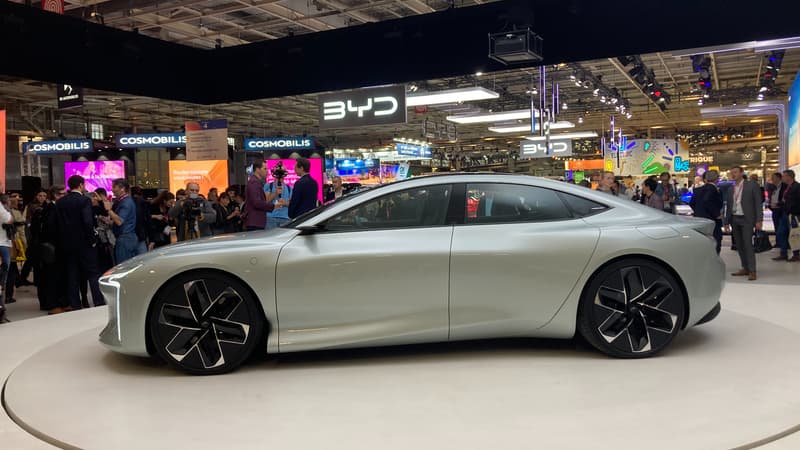The first few years of a startup’s life are often rhythmic. And Hopium is the latest example. According to an article published this Wednesday by Les Echos, the manufacturer of cars that run on hydrogen is facing an increase in its costs that would have quadrupled in the space of a year.
“In the first semester, the net loss reached 9.5 million, and the available cash had been reduced on June 20 to only 20,000 euros, compared to 4.9 million a year earlier,” adds the economic daily. In which it is specified that the salaries of October, November and December were paid late. Some vendors were also not paid.
Internally, these financial difficulties are justified by the economic context that is disturbing Hopium, like most car manufacturers in the world. “There are resources and components whose prices are rising and that are impacting our purchases, says Kerian Jarry, director of marketing. We are still a fuel cell vehicle (Editor’s note: fuel cell), but we have the same problems that all car manufacturers face with regard to electronic components and certain raw materials.”
“We must not forget that this is a project that was launched during the Covid, the conflict in Ukraine. It is a particular economic context and there are start-ups that are collapsing”, sums up Kerian Jarry.
Consequences on the workforce
These exogenous factors disrupt a long-established roadmap for the company founded by former racing driver Olivier Lombard. “Expenses are piling up and accelerating because it’s a project that develops and becomes more complex,” explains Kerian Jarry. To follow this plan, it was necessary to have this growth in equipment and related sourcing expenses, but at this stage of development, we are facing a financial crisis and have to readjust our plans.”
Specifically, this readjustment involves a review of the strategy in the short and medium term with a refocus on the development of technology, that is, the fuel cell, although “the vehicle remains in the crosshairs”. “This will have an impact on the roadmap dedicated to recruitment and on the workforce,” admits the marketing director who does not confirm the figures mentioned by Les Echos of 60 departures of the company’s 130 employees while 74 employees had been Hired in the first semester of 2022.
Various financing levers activated
Earlier this week, the start-up also announced that it would have a second tranche of 200 bonds convertible into shares with a nominal value of 10,000 euros each, as part of the agreement signed with the company Atlas Special Opportunities. In a press release, Hopium indicates that the funds thus collected will be used “to finance, as a priority, R&D expenses for the development of the technological platform, including the high-power fuel cell.” Above all, it evokes the exploration of other sources of financing “including through the appeal to the market”.
“We have gone through stages of exponential acceleration and it is this risk-taking that has allowed us to innovate, give teams the means to go all the way through reflection and R&D to develop one of the fuel cell stacks more efficient”, emphasizes Kerian. Jarry. But there is another side to the coin and this risk taking also has financial consequences and that is why the teams have reorganized.”
It is in this search for financial stabilization that Hopium has just registered the arrival of Sylvain Laurent, coming from Dassault Systèmes, and Philippe Baudillon to the respective positions of CEO and Deputy CEO. For his part, Olivier Lombard becomes the deputy general manager in charge of the product, six months after he handed over his position at the head of the board of directors to former Transport Minister Jean-Baptiste Djebbari.
What about the big project with Crédit Agricole?
If Hopium had been one of the great stars of the last Paris Motor Show, it is also because it had concluded the exhibition week by announcing an important alliance with CA Consumer Finance, the subsidiary specializing in consumer credit of Crédit Agricole. The key to this collaboration is the delivery of 10,000 Machina sedans for an order of 1.2 billion euros.
The vehicles in question were to be produced from 2025 at a future factory located near Vernon in Normandy. For now, the economic difficulties do not call into question this collaboration and Hopium recalls that the figure of 10,000 Machina is in fact a ceiling target.
“This announcement was rather a way of showing that Crédit Agricole believes in the development of hydrogen vehicles and that it was ready to support us, specifies the marketing director. For the moment, this intention is not in doubt.”
A status quo confirmed by CA Consumer Finance, which declines to comment on its partner’s financial situation: “We renew our support for this innovative French project in hydrogen mobility.”
Source: BFM TV


